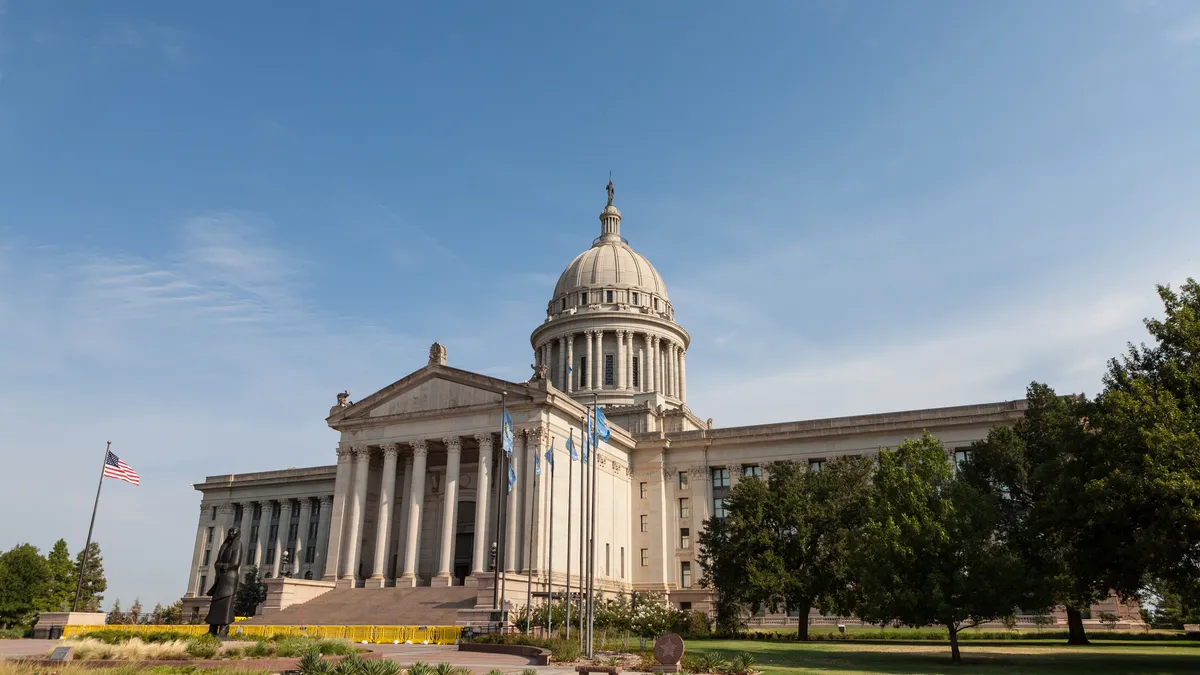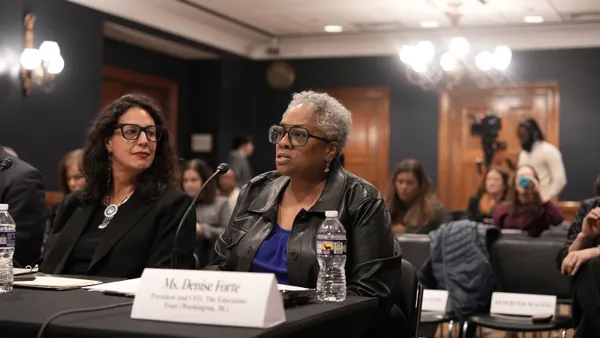The Oklahoma Statewide Virtual Charter School Board voted Monday to approve a contract with St. Isidore of Seville Catholic Virtual School, the nation's first religious charter school. The narrow 3-2 approval came after months of controversy over the school's constitutionality.
The board "is continuing on a misguided path to create the nation’s first religious public charter school in clear violation of Oklahoma law and the state’s promise of church-state separation and public schools that are open to all," said the American Civil Liberties Union and other organizations advocating for the separation of church and state in a joint statement responding to the contract's approval.
The groups filed a lawsuit on July 31 to stop the school's launch, claiming it plans to discriminate in its policies against students based on their LGBTQ+ status, religious beliefs or status as students with disabilities.
However, the school's creation was precipitated by two separate but related Supreme Court decisions — Carson v. Makin and Espinoza v. Montana Department of Revenue — that, when taken together, gave private institutions access to public funding regardless of their religious use or status. The cases left open the door for public funding of religious schools, including charters with religious instruction.
On Monday, as in previous meetings, the Oklahoma board members acknowledged the controversial nature of the school and their decision.
"This is about trying to find this pathway of how the state's constitution and the nation's constitution find a way to live together," said Robert Franklin, chairman of the Oklahoma Statewide Virtual Charter School Board, prior to the vote. Franklin was among two members to vote against the contract's approval. "It's very, very problematic. It does not align well," Franklin said.
The approval comes after the board initially rejected the school's application in April, asking it to resubmit its request addressing issues related to concerns like academics, special education services and internet access for rural students.
At the time, the board acknowledged the high likelihood of legal challenges from either those for or against the charter's creation, depending on the board's decision.
However, it approved the application in June — also by a narrow 3-2 vote. The school is expected to open in August 2024 for the 2024-25 school year.
The unprecedented process has caught the attention of Oklahoma Attorney General Gentner Drummond and national public school and advocacy groups, considering it could potentially inform the development of additional religious charters in Oklahoma and beyond.
The Oklahoma Statewide Virtual Charter School Board, in fact, on Monday also discussed the possibility of the contract being used as a template for future faith-based schools.










